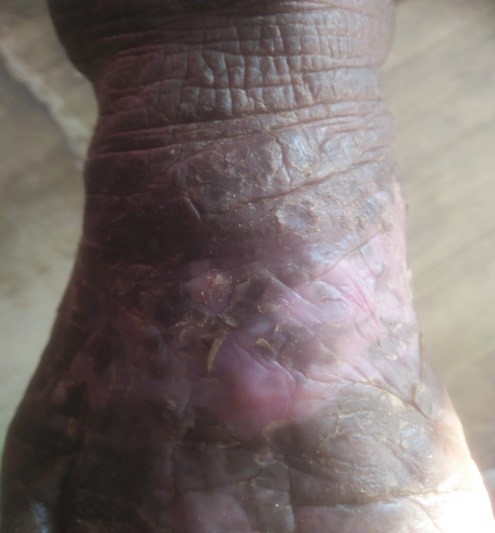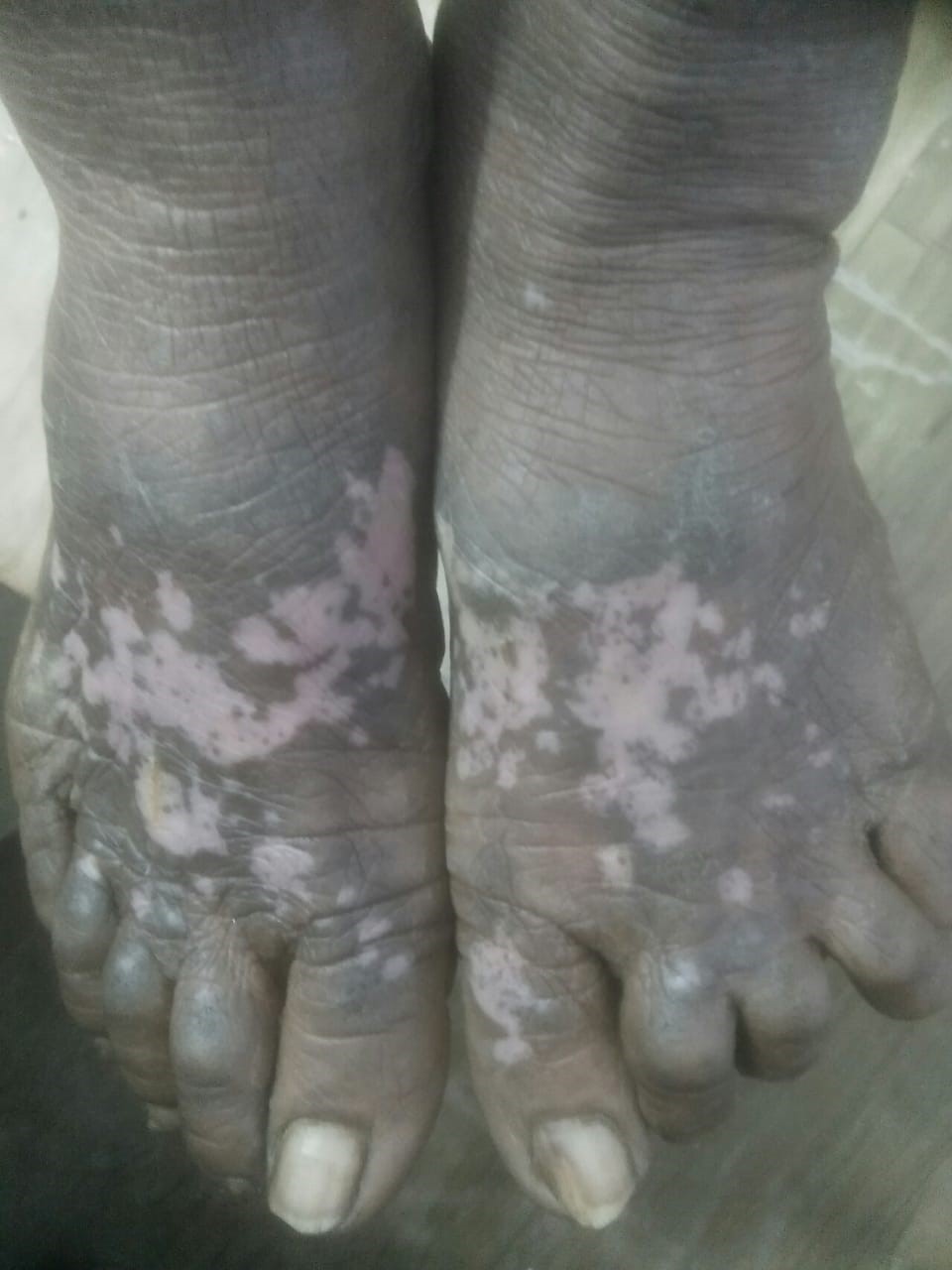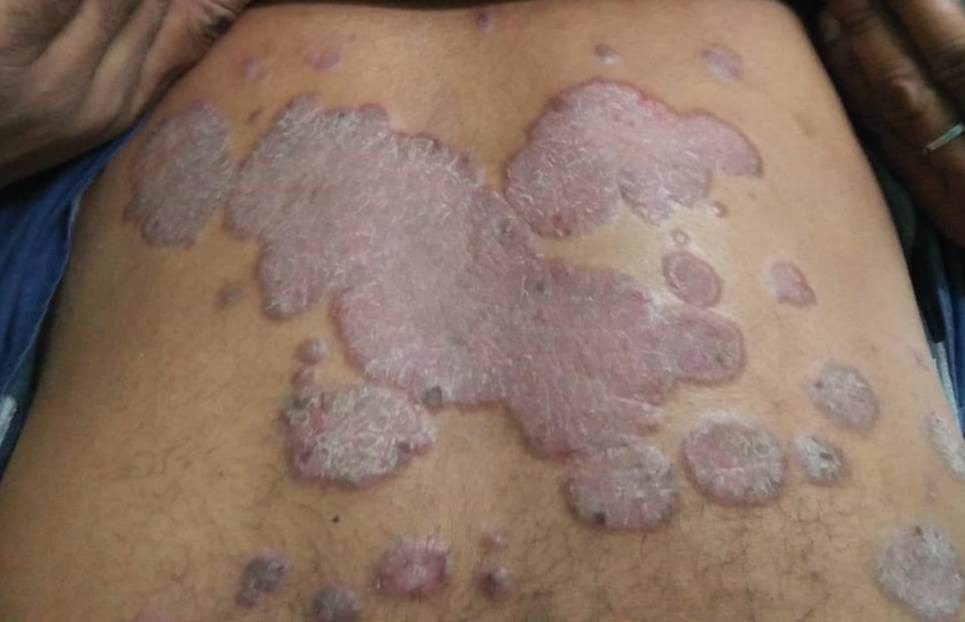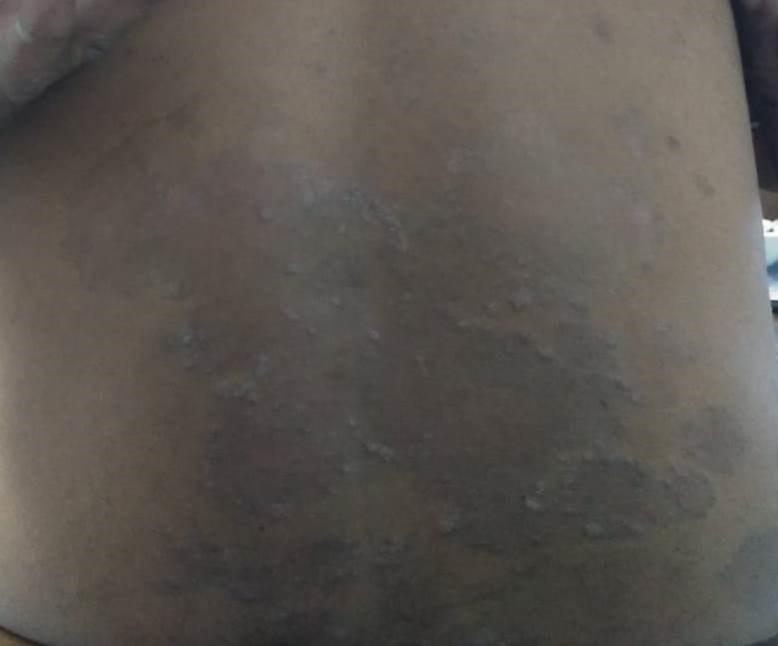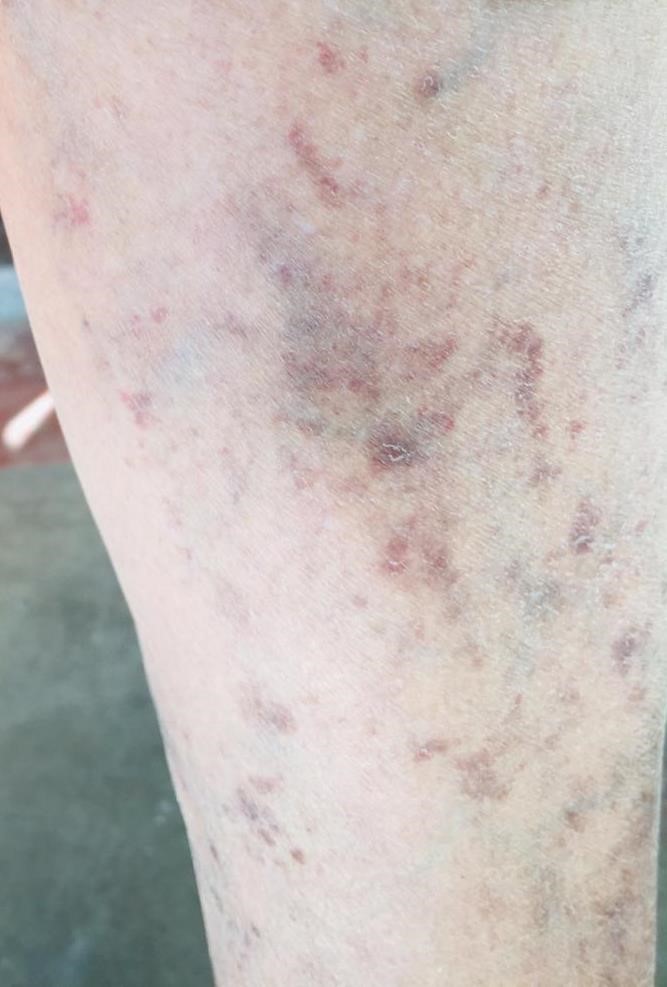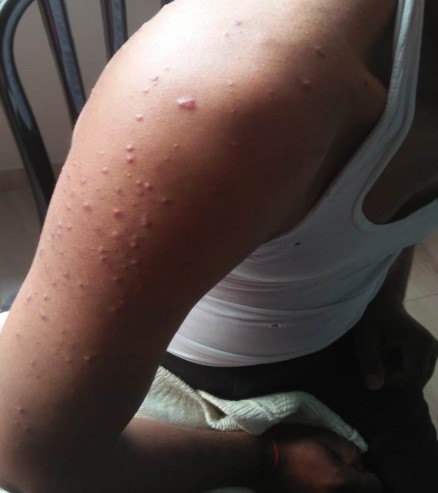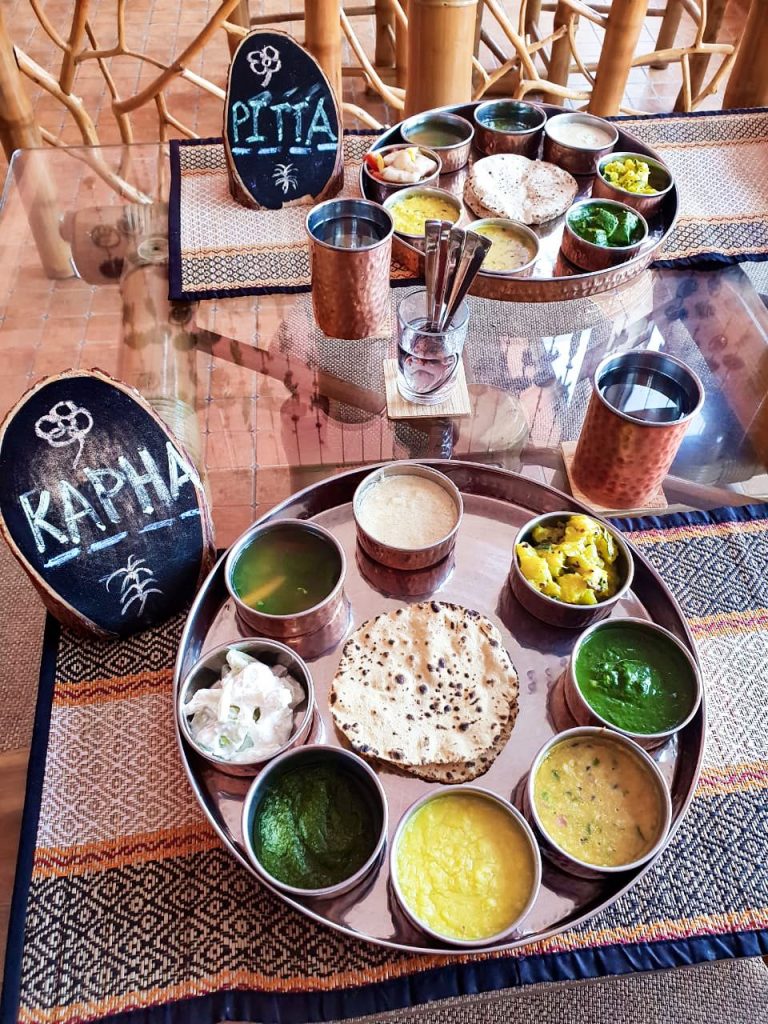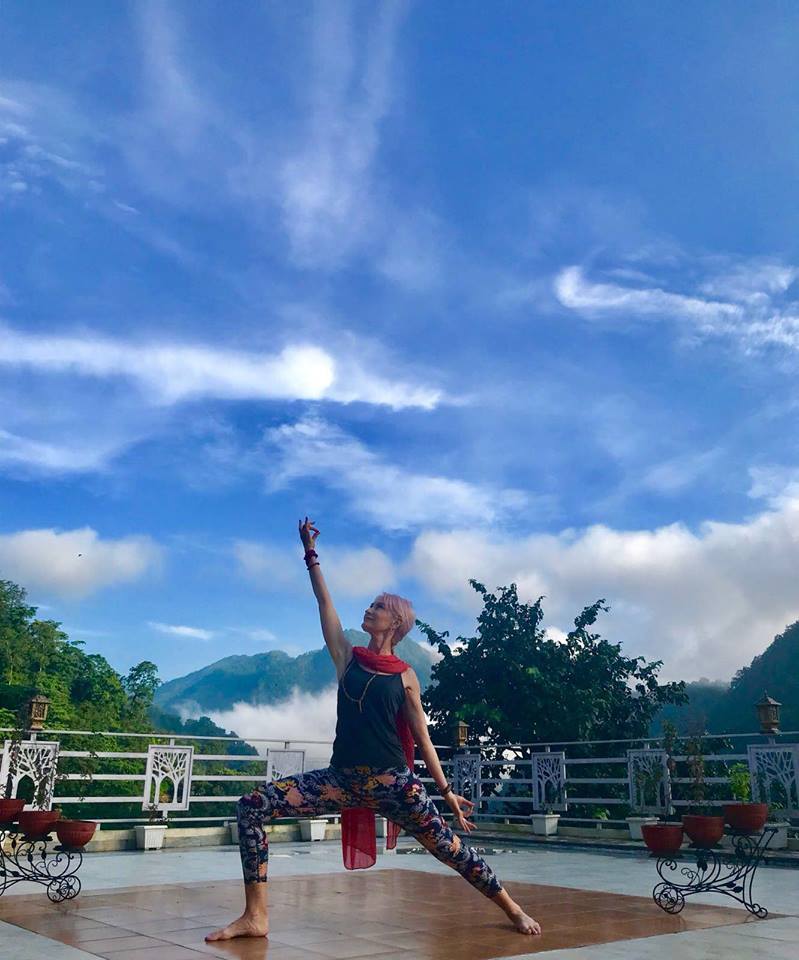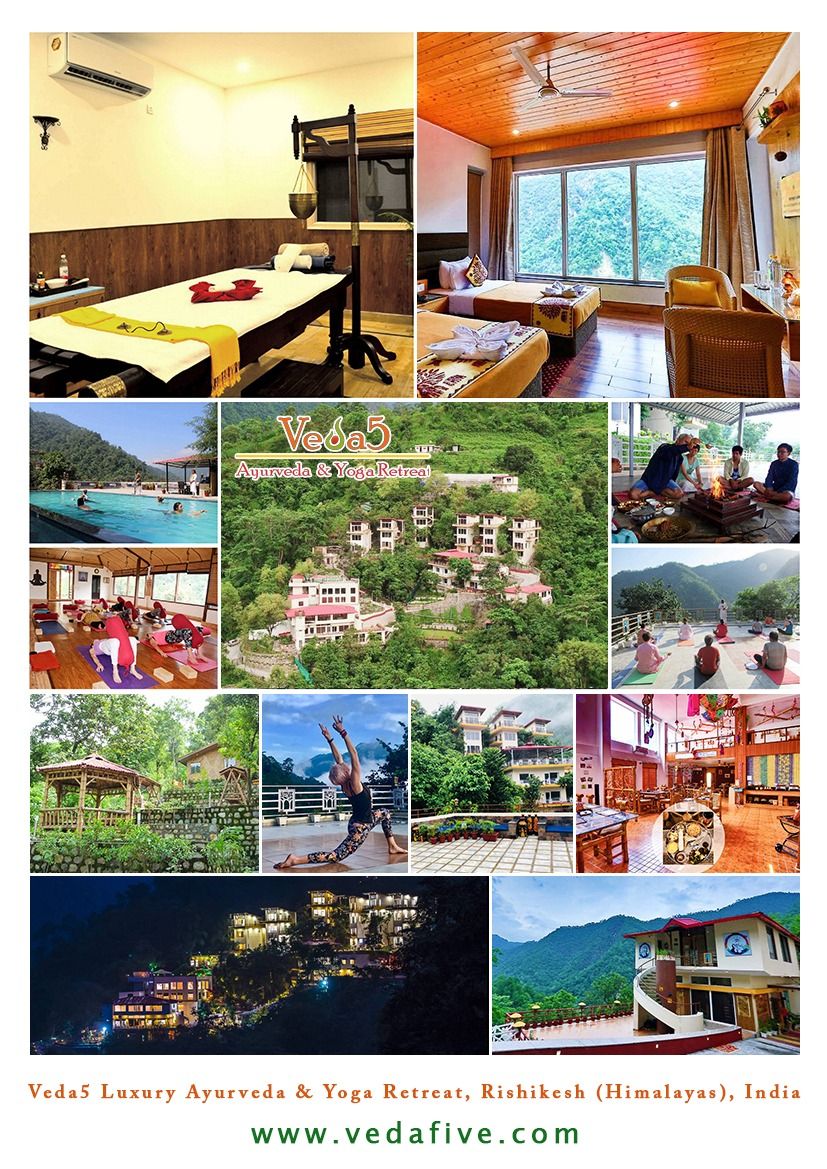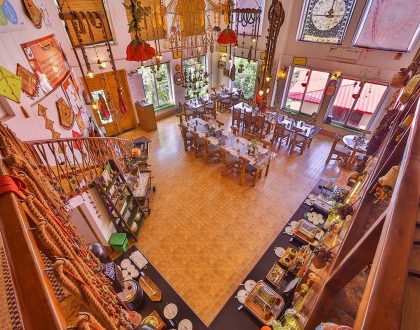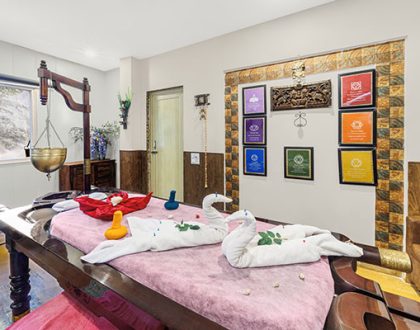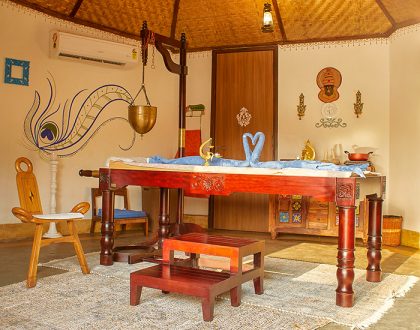Treating Skin Disorders Successfully Through Ayurveda in Rishikesh, Goa & Kerala India
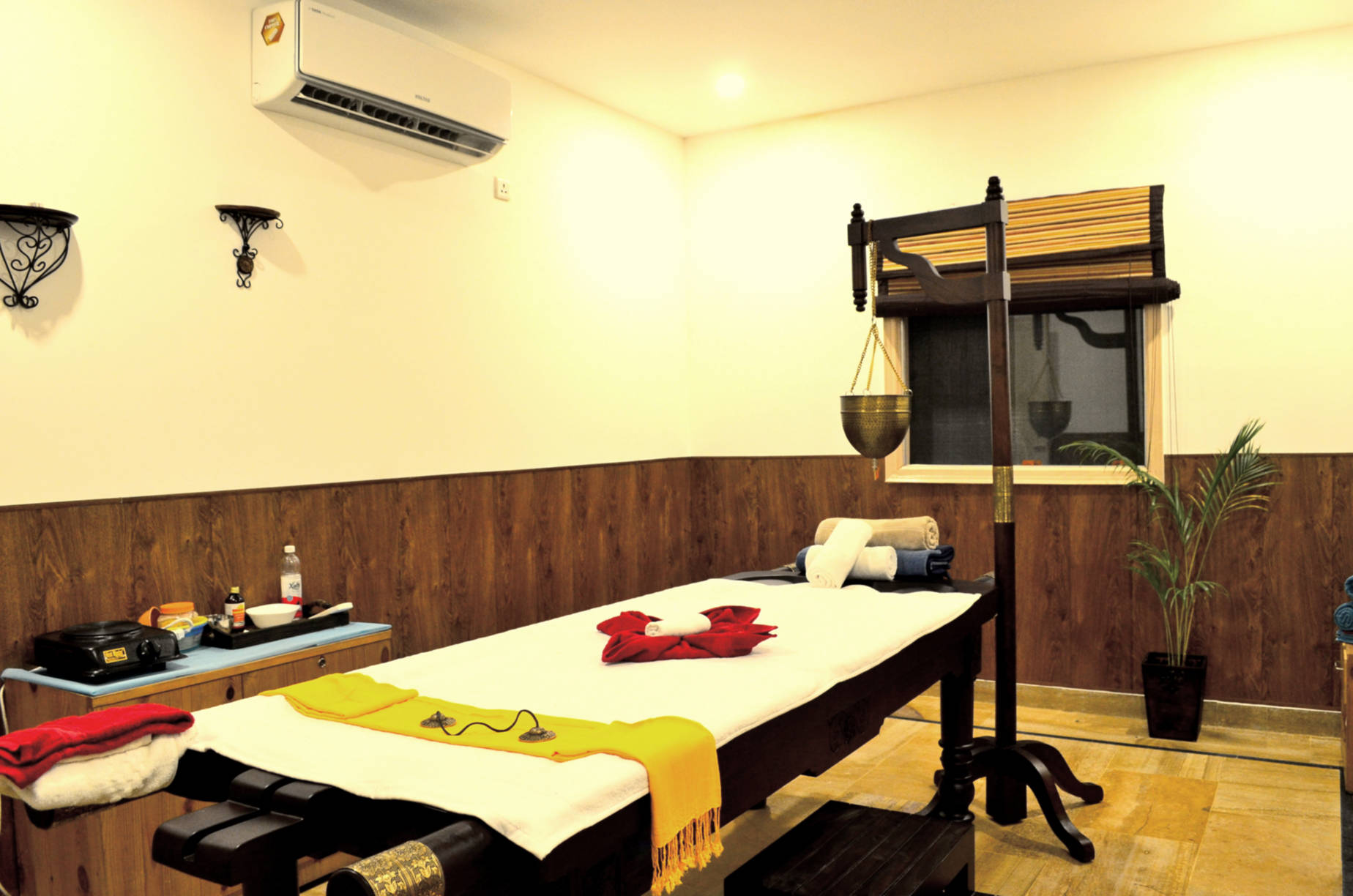
Skin Disorder Treatments at Veda5 Ayurveda, Rishikesh, India
Author:
Dr. Ravi Joshi
B.Sc. & M.D. In Ayurveda
Ayurvedic Consultant and Panchakarma Specialist
Veda5 Ayurveda and Yoga Retreat,
Rishikesh, Uttarkhand
Skin conditions are often affected by the seasons and can become increasingly worse in the fall and winter months. Skin is an organ which represents some inner abnormalities and stress conditions within one’s body. Tvak (Skin) is just like a mirror reflection and manifesting various type of inner abnormality or diseased condition.
In Ayurveda, major skin diseases have been classified under the heading of Kustha. According to Ayurvedic classics, the word Nidana (Causative Factors) carries two meanings viz., causative factors and diagnosis. It is very important to know the cause of a disease, because in any disease where the cause is known, treatment becomes very easy.
At the end of this article, you can see pics of results of Ayurvedic treatments for different skin disorders by the highly-experienced doctors of Veda5 Ayurveda & Panchakarma Retreat in Rishikesh, India.
Some Common Skin diseases are Eczema, Contact Dermatitis, Atopic Dermatitis or Psoriasis
Eczema is inflammation of outer layer of skin with itching. Eczema is more common in cities, polluted areas and in the northern part of the world. In Ayurveda the symptoms of eczema is compared with Vicharchika.
Psoriasis is a Inflammation and redness around the scales is fairly common. Typical psoriatic scales are whitish-silver and develop in thick, red patches. Sometimes these patches will crack and bleed. . In Ayurveda the symptoms of psoriasis is compared with Ekakustha.
Contact Dermatitis is a red, itchy rash caused by direct contact with a substance or an allergic reaction to it. The rash isn’t contagious or life-threatening, but it can be very uncomfortable. In Ayurveda the symptoms of Contact Dermatitis is compared with Charma kustha.
Atopic Dermatitis is the most common form of eczema. It often affects people who also have: Asthma or hay fever, Family history of eczema, asthma, or hay fever. Defects in the skin barrier, allowing moisture out and germs in Atopic dermatitis usually begins during infancy or childhood. But it can strike people at any age. Most often, it affects skin on the: Face, Hands, Feet, Inner Elbows and Back of the Knees.
According to Ayurveda, all these skin diseases are caused because of vitiation of all the three doshas namely – kapha, pitta and vata.
In conventional medicine the root cause of skin problem is not clearly understood, but abnormal immune function and hereditary factors are thought to play a major role.
Aggravating factors include seasonal changes, certain foods, environmental allergens, pet dander, soaps, detergents, some fabrics, hot water, and bodily sweat.
Certain high allergy foods such as wheat, gluten, soy, corn, and dairy are believed be causes, but efforts to omit lots of items from the daily diet can be frustrating and almost impossible and may not make any difference in the long run.
In any case, it is best to start with the basic guidelines offered here along with a well-rounded individualized Ayurvedic program and over time take further measures with dietary restrictions if needed.
In Ayurveda, psoriasis is a similar condition to eczema in that it has much of the same root causes, so herbal treatment and dietary and lifestyle recommendations are also similar.
The Ayurvedic Perspective on Skin Disorders
In Ayurveda the skin disorders are referred as kustha roga and it is related to the vitiation of any of the three doshas affecting the skin and blood as well as accumulated metabolic wastes. In general, the main dosha involved is pitta or kapha, but all three can be involved. Below is a general description of how doshas influence the characteristics of this skin disease.
 Vata types of skin disorders are characterized by extreme dryness, scaling, exfoliation, itching, and much pain and throbbing.
Vata types of skin disorders are characterized by extreme dryness, scaling, exfoliation, itching, and much pain and throbbing.
 Pitta types of skin disorders are associated with redness, blisters, bleeding, burning sensations, and infection. Pitta individuals may be prone towards seborrhoeic and contact dermatitis due to excess heat, especially in the armpits and on the scalp.
Pitta types of skin disorders are associated with redness, blisters, bleeding, burning sensations, and infection. Pitta individuals may be prone towards seborrhoeic and contact dermatitis due to excess heat, especially in the armpits and on the scalp.
 Kapha types of skin disorders cause itching, oozing, and thickening of the skin. Kapha types may also be prone to seborrhoeic eczema, especially in between rolls of fats as well as other moist sweaty areas.
Kapha types of skin disorders cause itching, oozing, and thickening of the skin. Kapha types may also be prone to seborrhoeic eczema, especially in between rolls of fats as well as other moist sweaty areas.
Tridoshic types are when all three doshas are involved and the various symptoms are mixed, which is common in many chronic cases.
For some people this condition can be acute and pass within a short period of time, while others experience lifelong symptoms. Though not a life threatening condition, it does cause psychological stress and extreme self-consciousness.
Modern medicine believes there is no cure for this condition, but Ayurveda can safely manage and in many cases cure it over time. Treatment in Ayurveda is a holistic process with more than the just application of topical creams or oils. It requires great discipline, observance of diet and lifestyle, much patience, and a good method for stress management.
Herbal Treatment in Ayurveda
To treat skin disorders, it is essential to have the guidance of a skilled practitioner who can tailor an herbal and dietary program specific to your individual needs. Not all cases can be treated or respond to treatment in the same way, so follow-up care is necessary. Because these conditions can take some time to treat successfully, having the care of a skilled practitioner also provides the necessary support and reassurance at the emotional level while the healing process takes place.
Cleansing from within is also a major factor in removing this type of condition, as accumulated toxins tend to surface on the skin. A progressively cleansing diet may be necessary to promote the healing process and allow proper digestion of food (to avoid further accumulating toxins in the body) along with the unique cleansing therapies. Ayurveda has Panchakarma for deep detoxification, and a stress management program that would include yoga and meditation to strengthen the body while calming your mind.
Cleansing and Rejuvenation for Skin Disorders
One of the most important aspects of skin disorder treatment includes seasonal detoxification with Panchakarma. This allows for the removal of deep-seated toxins and metabolic wastes, and also helps to weaken the tendencies for bad habits that stand in the way of the healing process. This type of cleansing process is tailored to your individual needs to help remove excess dosha and toxins, calm your mind and nervous system, and uproot the underlying causes of this condition. Panchakarma program, but only under the guidance of a trained practitioner.
In infants with skin problem deep cleansing is not indicated and the treatment is usually given through the mother, especially in the case of a breastfeeding baby. Usually, in such cases simple home remedies and diet and lifestyle tips are given for both mother and baby. A daily teaspoon of Aloe Vera juice mixed with any liquid and given to the infant can do wonders to relieve symptoms and rejuvenate the skin. If the condition persists after 3 years of age, internal herbs may be given.
Traditional Ayurvedic warm oil massage, herbal steam bath, and Shirodhara are very beneficial in most the cases and can be performed as often as desired to promote lymphatic circulation, gently cleanse the system, calm the body and mind, and overcome fear and insecurity around the issue.
Ayurvedic Treatment or Detoxification Therapy for Skin Disorders
Since skin disorder is a constitutional and deep rooted disease, external medications are not effective for its treatment. Such medications can only work upon manifestation of a problem and leave the underlying causes. Ayurvedic treatment for eczema adopts an elaborate process to purify blood to cure the root cause of the disease.
Snehana is an oleation therapy that makes the skin smooth. Snehana works on the doshas and loosens blocked channels. There are two types of snehana namely Bahya snehana and Abhyantara snehana. In Bahya, ghrita (ghee), taila (oil), vasa (muscle fat) or majja (marrow) oil is externally applied on the body. While in Abhyantara, oils are internally administered i.e. consumed by the patient.
Swedana removes srotovarodha (obstructions in channels) that are loosened by snehana. It is a fomentation therapy wherein, sweating is induced to get rid of excess toxins from the blood. This can be done by exercise, with the aid of fire or through sauna. There are two main types of swedana namely saagnisweda (done with help of fire) and anaagni sweda (done without fire).
Panchkarma is the process which pacifies the aggravated doshas by natural herbs and appropriate diet. Panchkarma is a blood purification process that involves five procedures namely Vaman, Virechan, Basti, Nasya and Raktamokshan.
Common Ayurvedic Herbs Used In Skin Disorders
Ayurveda offers many traditional and custom formulations that are specific to the various forms of this condition, but these can only be selected once a full evaluation is made by our Ayurvedic practitioner. Below is a general list of some of the most commonly used herbs to treat eczema, psoriasis, and related skin conditions.
Neem clears the heat and toxins from the liver and blood and relieves itching.
Manjista balances pitta in the skin, calms itching, and purifies blood.
Guduchi relieves all three doshas, especially pitta, reduces burning and systemic inflammation.
Punarnava is good for pitta and kapha related skin diseases.
Turmeric detoxifies, reduces inflammation, and relieves itching.
Aloe juice cools the blood, promotes healing of the skin, cleanses intestines, calms itching and burning sensations.
Licorice calms and sooths tissues, balances bitter herbs used to treat this condition, pacifies vata and pitta.
Triphala cleanses the entire GI tract, promotes healthy digestion and absorption, and improves the tone of the skin.
Jatamansi calms the mind, replenishes the nervous system, cleanses the blood, and balances all the doshas.
Ashwagandha reduces effects of stress, calms vata in the mind and the nervous system.
Tikta Ghrita (bitter medicated ghee) purifies the blood, and cleanses and regulates proper liver function.
Ayurvedic Remedies for Common Skin Disorders
One teaspoonful of Panchatikta ghritam twice a day and one tablet of Arogyavardhini thrice a day are prescribed to all patients of eczema.
Chaturmukha and Khadirarishta are the other Ayurvedic medicines for eczema.
The affected area must be massaged with Guduchyadi taila or Mahamarichyadi taila.
Common Diet Management for Skin Disorders
Dietary supplements are an important part of Ayurvedic remedies.
Vegetables that have high content of antioxidants and vitamins are useful to cure eczema. Tomato, spinach, carrot, turmeric and spinach juice are some of the examples.
The vegetables that must be avoided by people with eczema include cucumber, ginger, radish and onions. Avoid eating sour foods.
The best part of Ayurvedic treatment is that you need not worry about side effects. It is for this reason that Ayurvedic treatment for skin disorders is largely used for babies as well.
*Proper diet and treatment will be planned after Consultation and Visual observation of the skin by Veda5’s experienced Ayurveda Doctors.*
Pictures of Before & After Treatments
See below pics of some of the cases of different skin disorders treated by our Doctors at Veda5 Ayurveda, Panchakarma & Yoga Retreat in Rishikesh (Himalayas), India.
Video by Our Another Veda5 Ayurveda Doctor (Vaidya)
Mind, Body & Soul
Veda5’s Ayurvedic treatments are supplemented with nourishing Ayurvedic food using fruits, vegetables and herbs as available from Veda5’s organic farm and highly-beneficial Yoga and Meditation sessions from experts.
Please see the Packages menu on our website to learn in detail about Veda5’s well-designed Ayurveda and Yoga wellness and vacation packages in Rishikesh, Goa and Kerala for which our guests come from around the world to India.
Click here to learn more about wellness through traditional Ayurveda and Yoga in Rishikesh, Goa and Kerala.
Click here to send us your booking requirements. You’re welcome to contact us for more details.
Veda5 looks forward to hosting you soon!

